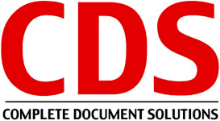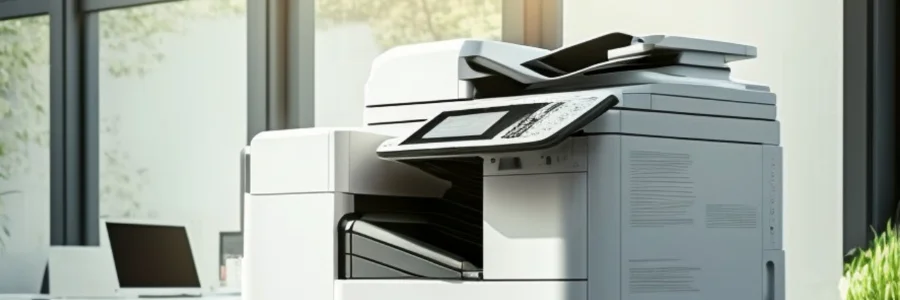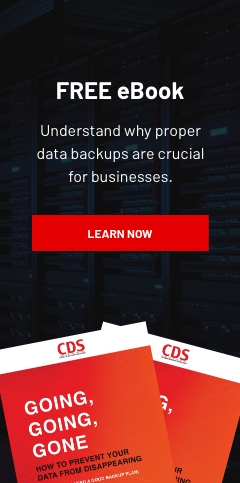If you’re reading this, then a copier is likely integral to your business operations, and any decisions you make about it are important ones. The first thing you have to decide is how to acquire a copier in the first place, and you’ve got a few options to consider.
Whether you should buy, rent, or lease a copier will depend on your organization’s needs, financial situation, and future goals. Let’s examine the pros and cons of each option so you can make an informed decision and get a copier in the way that benefits you most.
Buying a copier
The simplest option is to just buy a copier outright. A lot of people like the feeling of control that ownership provides, but keep in mind you also get saddled with all of the responsibilities.
Pros for buying
Full control
Once you buy a copier, it’s yours and you can do whatever you want with it, including customizations. You can also sell it to recoup some of the costs later, or even break it down for parts.
Long-term savings
With a purchase, the costs are all upfront, and with inflation and interest prices being what they are you are likely getting a good price. There are no monthly payments to factor into your budget each month, and you can write off the purchase for tax purposes.
Cons for buying
High initial investment
It’s nice having to pay just once, but that is assuming you have the capital to make such a purchase outright. If you’ve got a limited budget or poor cash flow, paying full price for a copier may not be possible.
Maintenance and repair costs
With ownership comes responsibility, so the costs of maintaining the copier and fixing it when it breaks down fall to you. Also, your IT technician may not be confident with troubleshooting copier issues, so you may have to hire specialized support services.
Obsolescence
Every piece of hardware, including copiers, have a fixed lifespan. In general, it takes about five years before a copier starts to break down or show performance issues. During this timespan, the same copier manufacturers will likely release better and more efficient models. Unless you want to keep paying for increasingly expensive repairs and replacement parts, you’ll eventually have to shell out cash for upgrades in the future.
Renting a copier
When you rent a copier, the terms are much more flexible. Renting is great if you have temporary needs, but the cons make it a poor choice for organizations that need copiers for core operations.
Pros for renting
Maximum flexibility
If you only need a copier for a brief period of time or just want to test out a specific model for the month, renting is the best option. Short-term rental agreements for copiers offer the most flexibility for businesses, especially if they’re testing the waters with different makes and models.
Low upfront costs
Since you’re not purchasing the copier outright, the initial capital investment of a rented copier is significantly lower. Plus, it’s in the best interest of the provider to have a fully operational machine, so they may offer copier supplies and maintenance services at discounted rates.
Cons for renting
Most expensive over time
Initially, rentals may seem more cost-effective than purchasing a copier, but the cumulative rental fees can surpass the expense of outright ownership over time. Additionally, the lack of equity in the equipment means you're continuously paying for something that never truly becomes yours, potentially resulting in higher long-term expenses.
Limited availability and choice
Rental copiers are usually restricted to a handful of the most popular models, so you might not be able to get a machine with the exact features you need.
Leasing a copier
A long-term lease is a good middle ground for acquiring a copier. You can get the best of both worlds in terms of costs and capabilities, but leasing is not without its own problems.
Pros for leasing
Budget-friendly
You only pay a small monthly fee for leasing a copier, and usually only have to put down two months or so as a deposit. This means you can get your copying needs met for a low initial price.
Support included
Many leasing agreements include maintenance and repair services, meaning the leasing company handles these costs.
Reduced obsolescence
With leasing, you can avoid being stuck with outdated technology, as you can upgrade at the end of your lease term.
Cons for Leasing
Costs over time
Monthly payments are easy on the budget, but over the long run, you might end up paying more than the purchase cost. And in the end, you have nothing to sell to recoup costs.
Binding contracts
Leasing agreements typically require a commitment of several years, which can be restrictive if your business’s needs change.
There’s a lot to consider when choosing the right copier for your business. If you’re still not sure which is the best option for you, contact Complete Document Solutions. We offer copier rentals, leases, and purchases at prices that fit your budget.



Leave a comment!